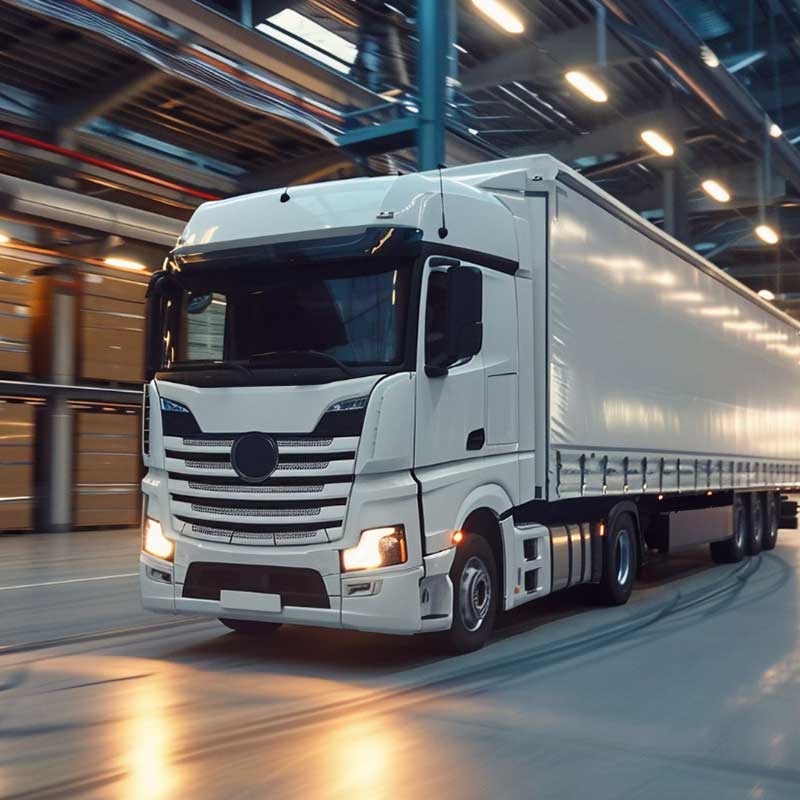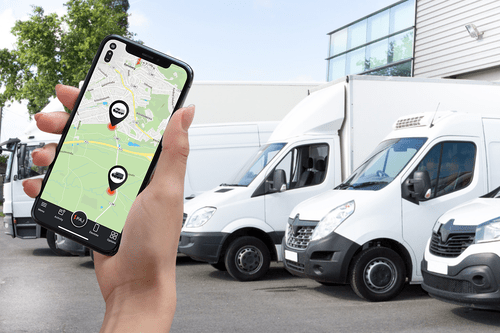How Do Companies Track vehicles?
You are running a business that is expanding every year. With the growing business, you are acquiring more vehicles to meet business needs. With an increasing number of vehicles in business fleets, it becomes progressively challenging to monitor their usage. An enterprise should have data about their vehicle usage to understand employee performance, fuel consumption, and even tax.
Excel sheet is ok for one or two vehicles, but for several fleets, it becomes counterproductive. In this article, let us dive deep into How Companies Can Track their Vehicles easily and save millions of dollars.
Why do companies track vehicles?
There are many benefits to tracking your vehicles. Let us look at some of them here.
- Tracking helps to monitor companies’ fleet management process by providing real-time accurate data on vehicle locations, fuel levels, and maintenance requirements. It allows us to make impactful decisions that benefit the progress.
- Tracking will ensure drivers’ safety and accountability: companies can monitor drivers’ behavior and encourage them to follow safe practices; by making drivers accountable, companies can protect themselves from potential liabilities.
- Route optimization using trackers can help companies to make informed decisions on sustainability goals. Companies will get data on efficient routes and fuel efficiency. With the data from trackers, companies can find efficient routes and cut out inefficient ones.
Different types of systems
Let’s now look at all the technologies available for tracking with their pros and cons.
- GPS trackers for business
One of the easiest and simplest ways for companies to track their vehicles is using GPS trackers. Live location is transmitted back to the company by installing this small device in vehicle. PAJ GPS trackers for business provide data on speed, location, vehicle route, etc. Companies can easily access the data using our finder portal on mobile or computer.
- RFID system
Radio-frequency identification systems have two components: an RFID reader and a track tag. These tags are placed on automobiles, and whenever a vehicle enters strategic locations like distribution centers or job sites, the RFID reader will scan it automatically. These scanners then provide time-stamped proof of when and where a vehicle visits a location. The RFID system is less expensive when compared to the GPS tracking system; however, it does not have features like live location updates or speed alerts.
- Driver logs
One of the oldest methods in vehicle tracking involves companies asking drivers to submit detailed logs of their trips, stops, hours on the road, and activities. These driver logs allow companies to manually audit vehicle usage, fuel costs, labor hours, and regulatory compliance. Driver logs are time-consuming, and companies cannot make quality decisions based on data received from the driver’s log.
- Dash cams and Video monitoring
It is also a limited system. Companies can monitor drivers’ riding behavior and safety using dash cams or CCTV systems implemented in vehicles. Some companies also use in-cabin driver-facing cameras for further incentivize safe driving. Video footage from these can provide evidence when accidents or other incidents occur.
The combination of GPS tracking for business, driver logs, and dashcams gives companies comprehensive visibility over their fleets. Tracking vehicles this way improves efficiency, safety, and cost management for companies running large fleet operations.
Benefits of vehicle tracking
One of the top benefits of a tracking system is that it improves the customer service experience. Vehicle tracking systems empower companies to provide accurate delivery estimates to their customers. Since customers expect transparency and timely updates on their deliveries, they will be happy with the information companies provide with the help of a tracking system.
Bringing vehicle tracking systems to your company will improve productivity and efficiency as real-time information about vehicle locations, status, and performance is known. They will also help reduce costs by giving details for efficient route planning, reduced fuel consumption, and preventive maintenance based on tracking data.
Challenges in vehicle tracking
There are some challenges for companies when they shift to vehicle tracking systems. There may be privacy concerns among drivers and employees since, there is collection and use of data from vehicle tracking systems. Companies need to address it. Transparent communication from both sides should be there, and companies should establish clear policies to address these concerns.
There may also be technical issues like glitches or malfunctions happening sometimes, and there need to be regular maintenance and prompt troubleshooting are essential to ensure continuous and accurate functioning.
Common myths and misconceptions addressed
There are still many myths and misconceptions among people regarding vehicle tracking systems.
“Myth: There is a loss of privacy for employees after the tracking system gets implemented.”
“Truth: Companies can easily remove employees’ fear with transparent communication. Companies can also establish clear policies to ensure responsible data use.”
“Myth: Vehicle tracking is only useful for large companies.”
“Truth: In general, tracking systems are useful for every company. They can provide you with data, and the data company can make good decisions for enhancing their business.”
By now, it’s clear that having a vehicle tracking system for your business is essential and can boost growth. Discover the perfect GPS tracking solution for your business needs. Visit here to explore our range of GPS tracker for business and find the ideal fit for your fleet management requirements










